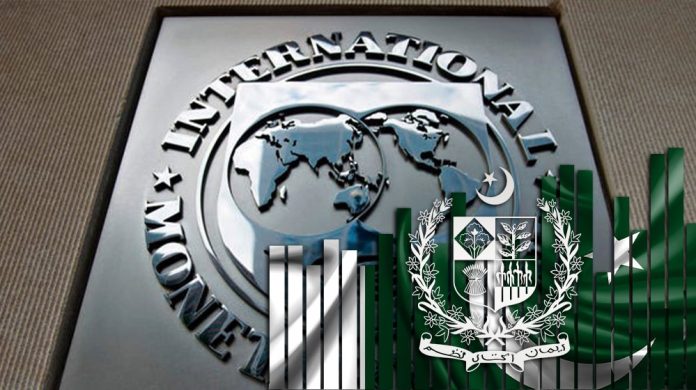Once a new government is formed in Pakistan amidst a perceived political crisis, talks between the country and the International Monetary Fund (IMF) regarding the seventh review of the IMF program will resume.
It has been clarified by sources that the IMF will continue to support Pakistan, as the concept of program suspension does not exist within the IMF. The Resident Representative of the IMF for Pakistan, Esther Perez Ruiz, confirmed that the Fund intends to sustain its support and engage with the new government on policies promoting macroeconomic stability and program engagement.
The Finance Ministry also dismissed claims of program suspension, stating that the Finance Division and IMF are actively engaged in data sharing and reform discussions, with the IMF reaffirming its commitment to Pakistan’s macroeconomic stability.
Likewise, the pokesperson Finance Ministry, Muzzammil Aslam tweeted that “the news item related to IMF program is conjectural.”
Likewise, a World Bank representative told Boostup Pakistan, “We are fully committed to supporting the development projects of the Government of Pakistan that are financed by the World Bank, for the benefit of the people of Pakistan. We will continue to support project preparation and implementation of Pakistan’s portfolio with the World Bank, as planned, and in close coordination with authorities.”
It is worth noting that the IMF had suggested a revised income tax structure for different income brackets in Pakistan. Under the IMF proposal, individuals earning between Rs. 50,000 and Rs. 62,500 per month would be subject to a 5% income tax, while the current government imposes this tax rate on incomes up to Rs. 100,000 per month.
For those earning up to Rs. 79,000 per month, the IMF recommended a 10% tax rate, whereas the government currently applies this rate to individuals earning Rs. 150,000 per month.
According to sources, the IMF proposed a 20% income tax rate for monthly incomes below Rs. 104,000, while the current rate of 20% is applicable to those earning nearly Rs. 417,000.
The IMF’s most significant proposal was a flat 30% tax rate for individuals earning between Rs. 104,000 and Rs. 1 million per month, while the existing 30% tax rate is imposed on incomes up to Rs. 4.17 million per month.
For individuals earning over Rs. 1 million per month, the IMF suggested a 35% income tax, whereas the current rate of 35% applies to those earning over Rs. 7.25 million per month.
Furthermore, the IMF urged for the taxation of pensions either at the contribution or withdrawal stage. Despite these differences, the IMF expressed its intention to continue supporting Pakistan, indicating that the engagements between the IMF and Pakistan have not concluded.

